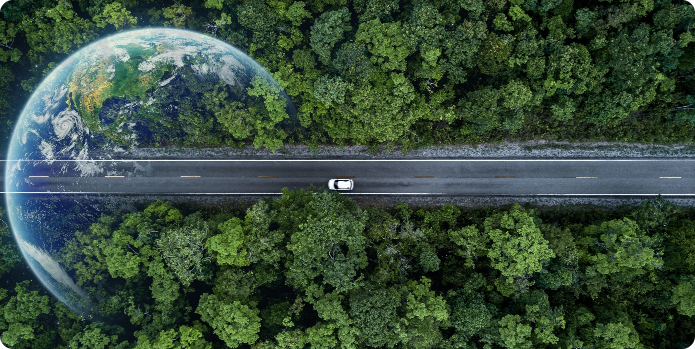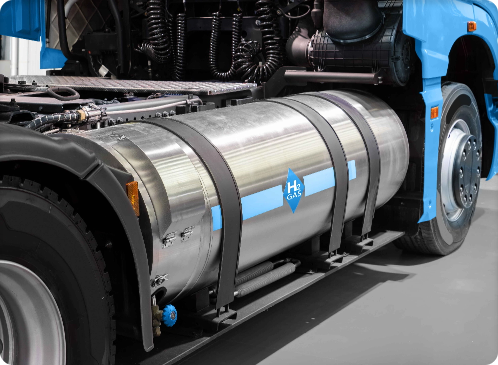AEL's decarbonisation strategy is closely aligned with India's NDC commitments, reflecting the nation's global commitment under the Paris Agreement to limit global warming to well below 2°C, with efforts towards a 1.5°C target. Our business-specific decarbonisation pathways are derived using science-based methodologies factoring in the IPCC scenarios.
65% Reduction
Operational Emission Intensity in FY 2024-25
47% reduction
Energy Intensity in FY 2024-25
24% Electricity
Procured from Renewable Sources

Our Targets and Commitments
AEL aims to reach Net Zero by 2070 or earlier in alignment with India’s Net Zero Target year and plans to reduce its emission intensity1 by 45% till 2030. The individual businesses within AEL also have their own decarbonisation strategies and Net Zero targets, in alignment with their respective industry best practices and sectoral decarbonisation pathways.
Adani Airport
Operational Net Zero by FY 29
AdaniConneX
Operational Net Zero by 2030
Adani New Industries
Net Zero by 2050 (signatory to WEF’s ‘Transitioning Industrial Clusters’ initiative)
Reducing Our Operational Footprint
We are undertaking multiple initiatives across our businesses to reduce our operational GHG emission footprint, with a major focus on electrification, improvement of operational efficiency and increased uptake of renewable energy. For hard-to-abate sectors, we are exploring innovative decarbonisation solutions such as the use of green hydrogen and its derivatives.
Operational efficiency & circular economy
AEL is embedding circular economy principles into its operations to enhance energy efficiency, reduce waste, promote resource reuse and drive operational cost savings. The company has set a goal to reduce energy consumption intensity1 by 30% by 2030.
Transitioning to Renewable Energy
AEL is committed to transitioning its operations to renewable energy and electrifying its processes wherever feasible. The company has set a target to increase the share of renewable energy in its electricity mix to 50% by 2030, up from 24% in FY 2024-25.
Investments in innovative decarbonization technologies
AEL is building a fully integrated and cost-competitive green hydrogen ecosystem - 10 GW solar module, 5 GW wind turbine & 5 GW electrolyser manufacturing capacities, to produce 1 MMTPA of green hydrogen by 2030, along with derivatives such as green ammonia and methanol.
Engaging with Value Chain Partners
AEL is extending its decarbonization efforts beyond its own operations by actively engaging with its value chain. The company is mapping its entire supply chain to identify emission hotspots and collaborating with key partners to reduce their GHG emissions. It plans to incentivize upstream suppliers with price premiums for low-emission products and offer discounts to downstream partners who demonstrate emission reductions.


Airport ACA Level 4+
Mumbai Airport recently achieved the prestigious Airport Carbon Accreditation (ACA) Level 4+ certification, a distinction shared by only three airports in Asia..

Developing Hydrogen Fuel Cell Truck for Mining Logistics and Transportation
As part of our commitment to decarbonization....

Conversion of Airport-owned Fossil Fuel Vehicles to Electric Vehicles
As part of our commitment to achieving Operational Net Zero, we have made significant strides in adopting clean...
Climate Change